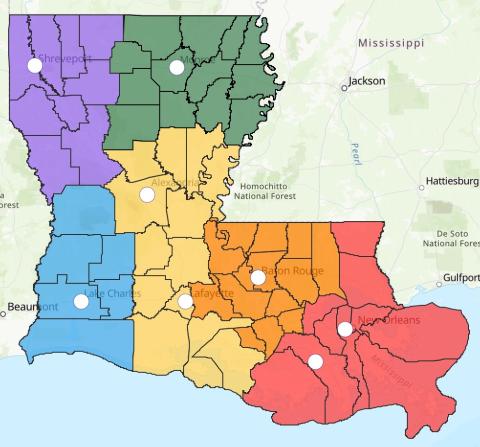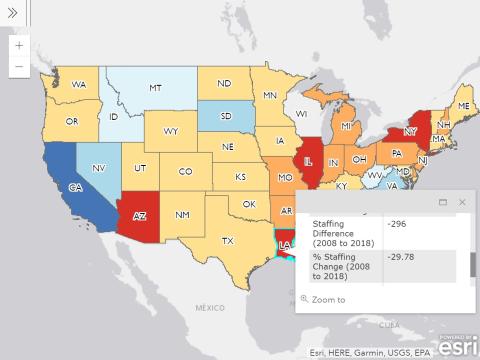Flooding fear Question 4
mtebbeSome residents of flooded homes in Three Rivers/Woodlake blame new housing developments that replaced orchards and a creek bed for recent flooding
Some residents of flooded homes in Three Rivers/Woodlake blame new housing developments that replaced orchards and a creek bed for recent flooding
Farmers drove pickup trucks loaded with dirt into a breached levee, then covered the trucks with dirt
Here is a ProPublic historical outline of DEQ legacy, including officials and their contributions as serving as secretary of the LDEQ https://www.propublica.org/article/how-an-environmental-regulator-became-known-for-protecting-industry
The agency is widely criticized as biased by environmental groups within the Parishes. Conflicts of interest have been cited due to the way in which the department generates funds and can expedite permit approvals. In ProPublica articles, the DEQ has been criticized for non-enforcement against polluting industries and doubting EPAs monitoring. https://www.propublica.org/article/in-cancer-alley-toxic-polluters-face-little-oversight-from-environmental-regulators#:~:text=Series%3A%20Polluter's%20Paradise-,In%20%E2%80%9CCancer%20Alley%2C%E2%80%9D%20Toxic%20Polluters%20Face%20Little%20Oversight%20From,the%20chemical%20industry%20it%20regulates..
Most recently, the EPA is pursuing litigation against LDEQ and Louisiana Department of Health alleging that the LDEQ discriminates on the basis of race, violating Title VI of the Civil Rights Act. Complaints filed on behalf of the Sierra Club, Concerned Citizens of St. Johns, Rise St. James, Louisiana Bucket Brigade and others are in regards to the LDEQ air pollution control programs and permitting that subjects residents on the basis of race, and that the failures to protect the health, disproportionately impact the minority communities, subjecting them to adverse health and environmental impacts.
The LDEQ has been critized for favoring industry, economic and business interests over public welfare. The DEQ has been cited as weighing the creation of jobs and land development over the air and communities being polluted.
Conflicts of interests have been noted through the DEQ expidited permit reviewal process that approves the siting of petrochemical facitilies. If companies want to expidite the permitting process they must pay the DEQ employees overtime. Conflicts of interest have been noted in the structural process of permitting approvals in which the companies pay the regulators that approve them.
The LDEQ consists of five major offices: Office of the Secretary, Office of Management and Finance, Office of Environmental Services, Office of Environmental Compliance, and Office of Environmental Assessment. The Office of Environmental Services is in charge of Air, Waste and water permits. The Office of Environmental Compliance works on surveillance and enforcement. There are multiple regional offices, 8 (shown below in added image), that serve the Parishes. Currently, as of April 2022, Chuck Carr Brown Serves as Secretary.

The LDEQ in recent years is underfunded and understaffed compared to previous years. Budget cuts and employee cutbacks are shown through the Environmental Integrity Project Report: During a Time of Cutbacks at EPA, 30 States Also Slashed Funding for State Environmental Agencies. Images below show Louisiana DEQ cutbacks. Red signifies the most cut backs while blue siginifies increased spending or employment by state.


According to the LDEQ Website, “The mission of the Department of Environmental Quality is to provide service to the people of Louisiana through comprehensive environmental protection in order to promote and protect health, safety and welfare while considering sound policies that are consistent with statutory mandates.”
The Grassroots Global Alliance provides a strategy for just transition to a regenerative economy. For the policy makers, this organizations has come up with these questions as guidance:
1. Who tells the story?
2. Who makes the decision?
3. Who benefits and how?
4. What else will this impact?
5. How will this build or shift power?
Framework: Protect, Repair, Invest, Transform. Under each category, this organization presents their demands and solutions.
Five points of intervention: the Narratives, Base Building and Organizing, Policy Development, Electoralization and Implementation, Direct Action.